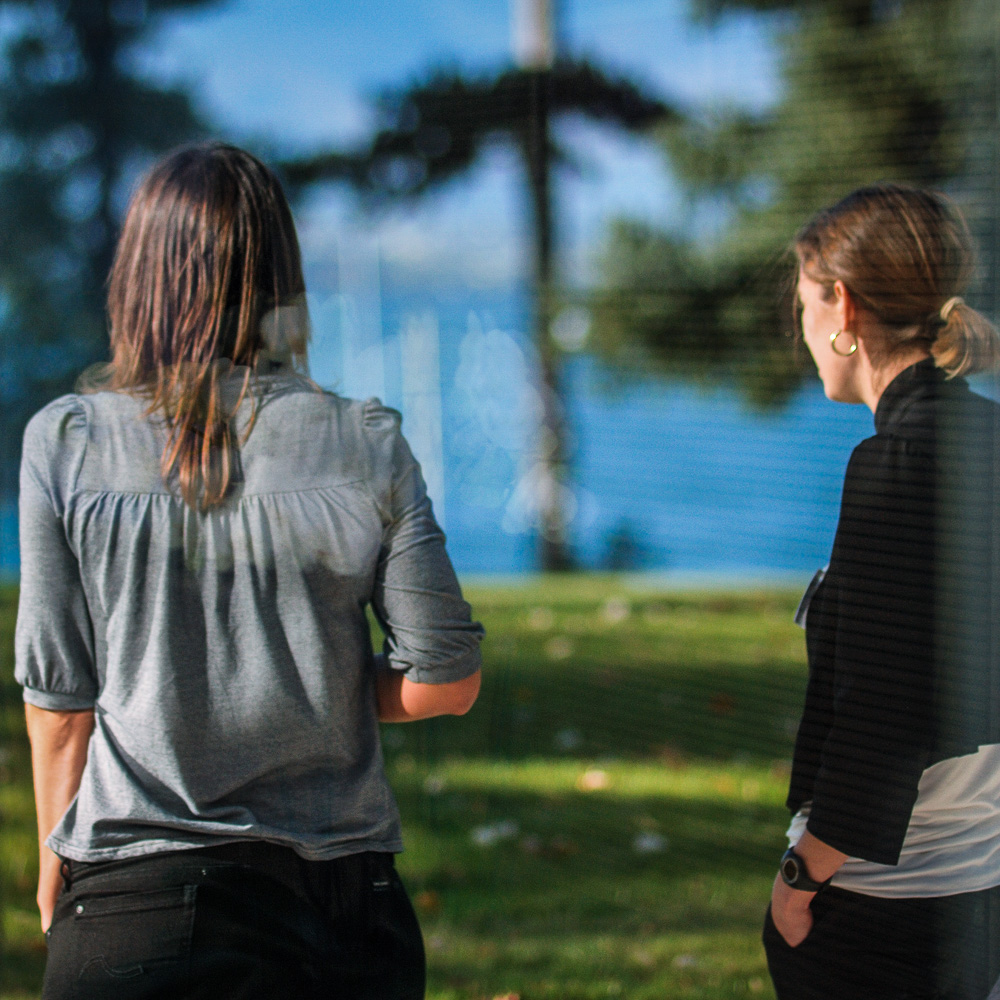Residencies
Since 2007, the Brocher Foundation researchers from around the world for Residencies to three-month Residencies devoted to the ethical, legal, and social dimensions of medical developments and health policy. Located on a Estate on the shores of Lake Geneva, the Foundation offers an exceptional setting for reflection, writing, and discussion.
By bringing together researchers from a wide range of disciplines - medicine, law, bioethics, philosophy, psychology, anthropology, history of medicine, sociology, economics and many others - the Foundation encourages a truly interdisciplinary approach to the major contemporary issues relating to medicine and health. Project presentation days and shared meals foster a convivial and intellectually stimulating atmosphere.
Close to many international organizations—such as the WHO, WTO, WIPO, UNHCR, ILO, ICRC, and MSF—the Foundation is a unique forum for dialogue between academia, public policy circles, and actors in the field. Each year, around 50 researchers stay at the Foundation, resulting in numerous publications that demonstrate the international influence and practical impact of the research carried out there.

Frequently Asked Questions
Who can apply for a residency at the Brocher Foundation
Anyone working on the ethical, legal or social dimensions of new advances in medicine, health policy or medical technology is welcome to apply. Residents come from all over the world and work in many fields: medicine, bioethics, philosophy, psychology, anthropology, sociology, economics, law, history of medicine, and many others.
Applications are open to researchers at all stages of their careers, from doctoral students to emeritus professors. By bringing together young researchers and experienced researchers, the Residencies valuable opportunities for mutual learning and collaboration.
How do I apply for a residency?
Applications are made exclusively via our Call for Candidates, which is open for approximately three months each year.
The next call for applications will be open from January1, 2026, to March 11, 2026, for Residencies place in 2027.
Applicants must complete an online form describing their project and the objectives of their residency. All applications are evaluated by our Scientific Committee, which selects the winning projects.
The process is competitive, but there is no limit to the number of applications: researchers can reapply if they are not selected on their first attempt.
How long does a residency last?
Residencies last one, two, or three months, depending on the candidate's preference. They generally take place between February, March, April, July, August, and September. The Scientific Committee then determines the final length of the stay based on the project and the availability of places.
What living and working spaces are available?
Residents are accommodated on site in single rooms. Each has its own bathroom, but in the historic villa, some bathrooms are not attached to the room and are located in the corridor.
Workspaces vary from room to room, and are allocated by the Foundation according to availability. Residents in smaller rooms have a separate individual desk, while those in larger rooms (with lake view, balcony or large desk) generally work from their room. All residents also have access to the auditorium, which can be used as a shared workspace.
The villa includes a shared kitchen, dining room and living room where researchers can relax and socialize, as well as a fully-equipped laundry room, freely accessible to residents.
What's a typical day in residence like?
A continental breakfast is provided each morning and is usually shared among residents. Lunch, served by the Foundation, is also eaten together, promoting interaction and collaboration.
Outside of these times, residents can organize their days according to their needs: working at their own pace, going for walks, or enjoying the peaceful surroundings of Estate. Dinner is not organized by the Foundation: everyone is free to cook for themselves or share a convivial meal with the other researchers.
Only one joint activity is planned: an internal workshop, organized a few days after arrival, during which each resident presents his or her project and discovers the work of his or her colleagues.
Can I bring a partner or relative?
Partners or relatives may not stay for the duration of the residency. As the residency is first and foremost a period of research and work, the Foundation is keen to maintain an environment conducive to concentration, collaboration and exchange between the researchers selected in the call for applications.
However, each resident can welcome a visitor for a short period of time:
- Stay of one month → visit of one weekend maximum
- Two-month stay → maximum one-week visit
- Three-month stay → maximum two-week visit
How much does a residency at the Brocher Foundation cost Brocher Foundation
The Residencies free of charge: the Foundation covers accommodation, breakfast and lunch, as well as the workspace. Residents simply need to bring their own work equipment (laptop, documentation, etc.) and cover their travel and dinner expenses.
Are there grants for young researchers?
Yes. The Foundation offers a grant for doctoral students and early-career researchers who do not receive any income during their Residencies. Upon presentation of supporting documents, these researchers are eligible for a daily allowance of CHF 15 and partial coverage of travel expenses (train or plane).
- No categories